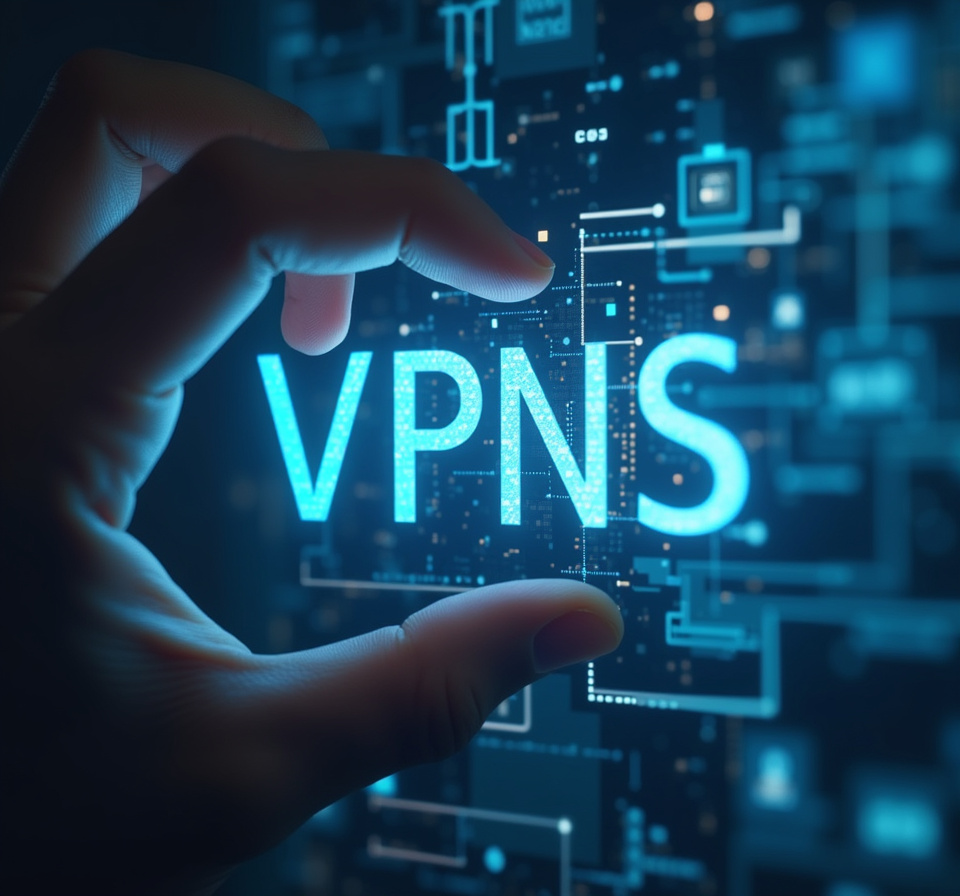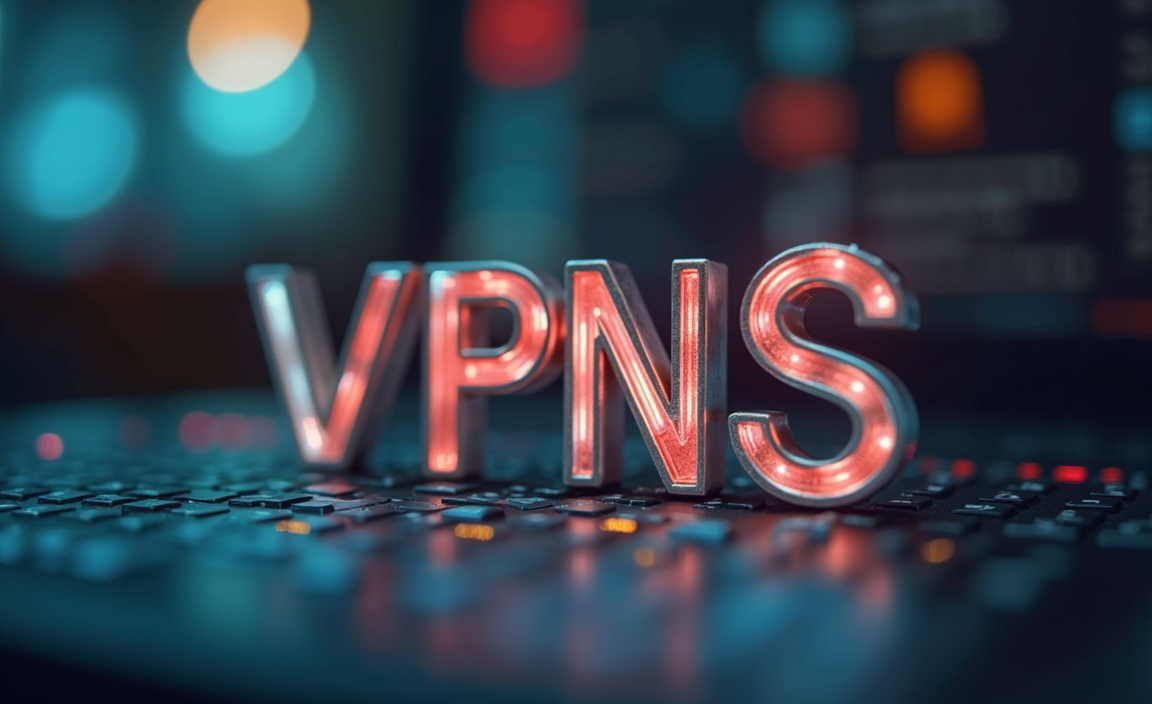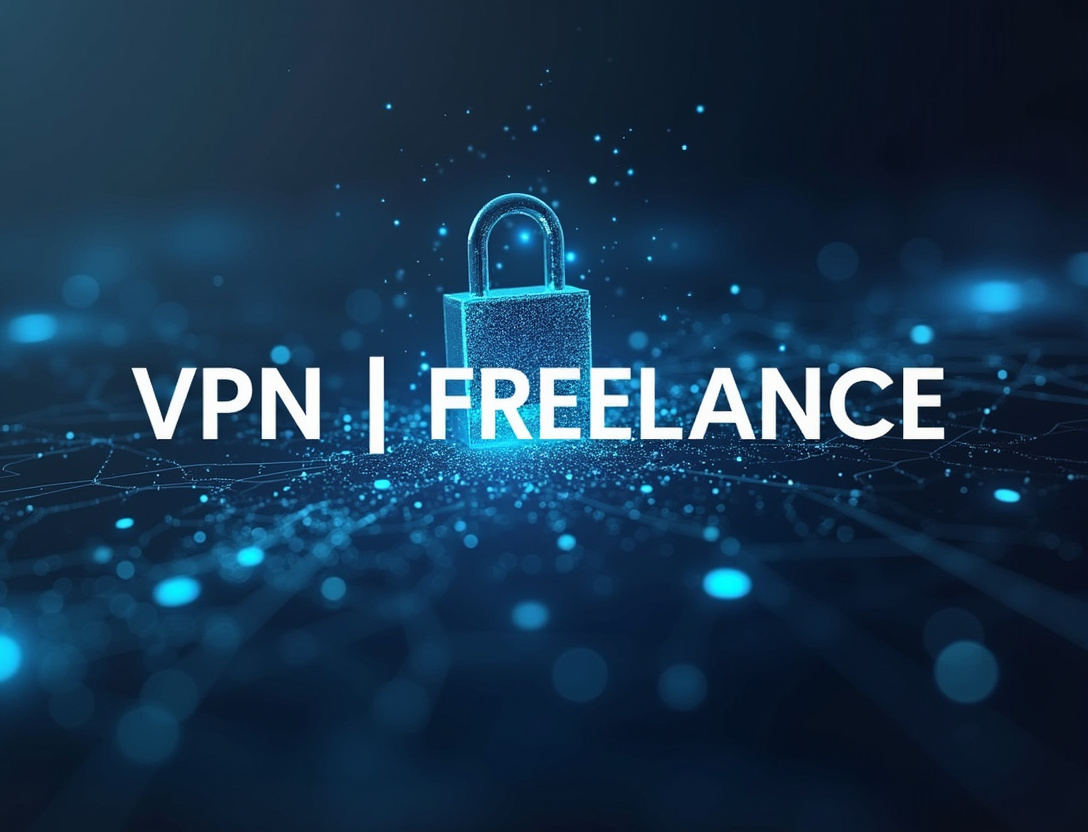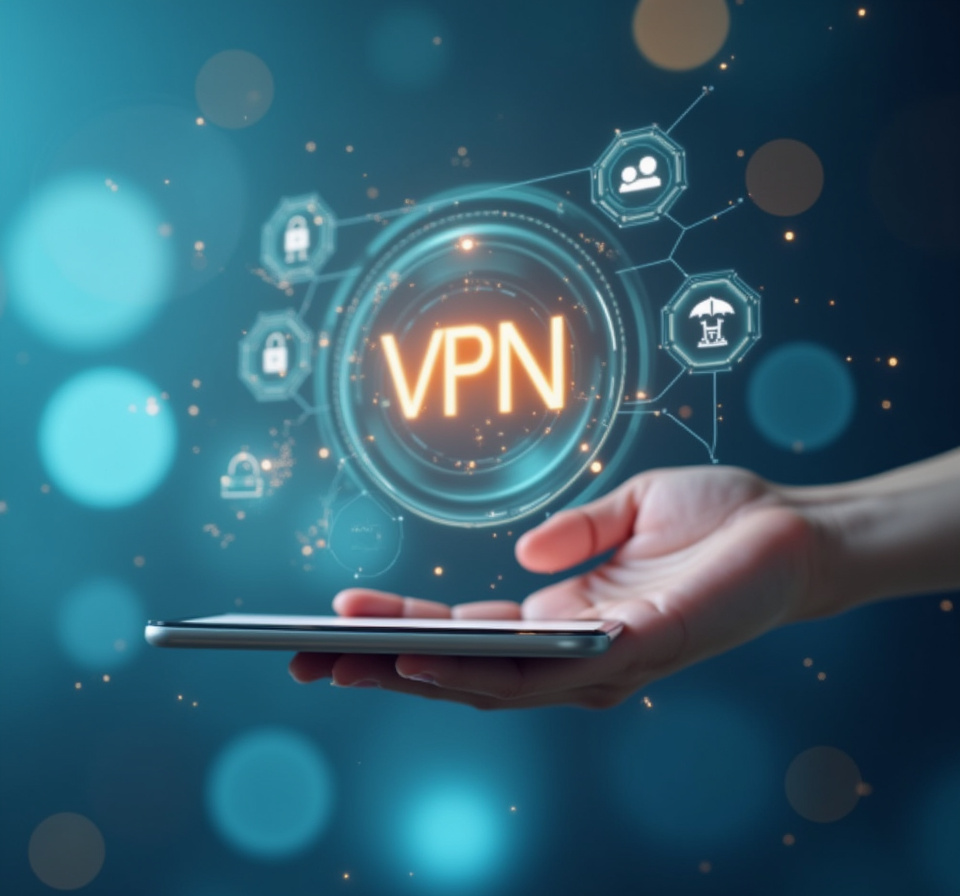The Role of VPNs in Protecting Online Identity

Table of Contents
protect online identity
In today's hyper-connected digital landscape, the concept of online identity has become increasingly paramount. Our digital footprint, comprising browsing history, online transactions, social media interactions, and location data, paints a comprehensive picture of who we are, our preferences, and our habits. This wealth of information is highly sought after by a variety of actors, including advertisers, data brokers, governments, and malicious cybercriminals.
Protecting our online identity, therefore, is no longer a matter of personal preference but a critical necessity for maintaining privacy, security, and control over our digital lives. One of the most effective tools at our disposal for achieving this goal is a Virtual Private Network (VPN). A VPN, in essence, creates a secure, encrypted tunnel for our internet traffic, masking our real IP address and making it significantly more difficult for third parties to track our online activities and .
The fundamental purpose of a VPN is to provide a secure and private connection to the internet, allowing users to bypass censorship, access geo-restricted content, and, most importantly, shield their personal data from prying eyes. While VPNs are often marketed for their ability to unlock streaming services or bypass geographical limitations, their true power lies in their ability to enhance and ensure . To understand how a VPN achieves this, it's essential to grasp the underlying mechanics of internet communication.
When you connect to the internet without a VPN, your device sends requests directly to the websites and services you access. These requests contain your IP address, a unique identifier assigned by your Internet Service Provider (ISP) that reveals your approximate location. This information, combined with other data points such as your browser type, operating system, and browsing history (often collected through cookies and trackers), allows websites and third parties to build a detailed profile of your online activities.
A VPN disrupts this process by acting as an intermediary between your device and the internet. When you connect to a VPN, your internet traffic is routed through an encrypted tunnel to a server operated by the VPN provider. This server then forwards your traffic to the destination website or service.
As a result, the website sees the IP address of the VPN server instead of your actual IP address, effectively masking your location. Furthermore, the encryption applied to the data transmitted between your device and the VPN server ensures that your internet traffic cannot be intercepted and read by unauthorized parties. This is particularly important when using public Wi-Fi networks, which are notoriously insecure and often targeted by hackers.
The encryption process typically involves the use of cryptographic protocols such as OpenVPN, IKEv2/IPSec, or WireGuard. These protocols encrypt your data using complex algorithms, rendering it unreadable to anyone who does not possess the decryption key. Even if a hacker were to intercept your internet traffic, they would only see a jumbled mess of characters, making it impossible for them to extract any meaningful information.
The choice of encryption protocol can impact the speed and security of your VPN connection. OpenVPN is a widely used and highly regarded protocol known for its strong security and reliability. IKEv2/IPSec is another popular choice, offering a good balance of speed and security.
WireGuard is a newer protocol that is gaining traction due to its simplicity and efficiency. When selecting a VPN, it's essential to ensure that it supports one of these robust encryption protocols. Beyond masking your IP address and encrypting your data, VPNs can also provide additional layers of protection against online tracking.
Many VPN providers offer features such as ad blocking and anti-tracking to further enhance your privacy. Ad blockers prevent websites from displaying advertisements, while anti-tracking features block tracking scripts and cookies that are used to monitor your online activities. By enabling these features, you can significantly reduce the amount of information that websites and third parties can collect about you.
In essence, a VPN provides a comprehensive suite of tools for protecting your online identity and maintaining your privacy in an increasingly surveillant digital world.
VPN protection
The benefits of using a VPN extend far beyond simply masking your IP address. VPNs provide a comprehensive layer of against a variety of online threats, including identity theft, data breaches, and surveillance. One of the primary ways VPNs protect your online identity is by encrypting your internet traffic.
This encryption scrambles your data, making it unreadable to anyone who might be trying to intercept it. This is particularly important when using public Wi-Fi networks, which are notoriously insecure and often targeted by hackers. Without a VPN, your data, including passwords, credit card numbers, and personal information, can be easily intercepted and stolen.
A VPN essentially creates a secure tunnel for your data, preventing unauthorized access. Imagine sending a postcard across the country versus sending a letter in a locked, tamper-proof box. The postcard is easily read by anyone who handles it, while the locked box keeps the contents private.
That's the difference a VPN makes for your online data. Another significant benefit of using a VPN is the ability to bypass censorship and access geo-restricted content. Many countries around the world censor internet content, restricting access to certain websites, social media platforms, and news sources.
A VPN allows you to connect to a server in a different country, effectively bypassing these restrictions and accessing the content you want. Similarly, many streaming services and websites restrict access to their content based on geographical location. A VPN allows you to connect to a server in the appropriate region, unlocking access to this content.
This is particularly useful for travelers who want to access their favorite streaming services while abroad, or for individuals who live in countries with strict internet censorship. For example, if a news website is blocked in your country, you can connect to a VPN server in a country where the website is accessible and read the news without restriction. Furthermore, VPNs can help to prevent price discrimination.
Some websites track your location and adjust prices accordingly, charging you more for products or services if you are located in a wealthier area. By using a VPN to mask your location, you can potentially avoid this price discrimination and save money. This practice, known as dynamic pricing, is becoming increasingly common, and VPNs offer a way to level the playing field.
In addition to these practical benefits, VPNs can also provide a sense of peace of mind. Knowing that your online activities are private and secure can reduce stress and anxiety, allowing you to browse the internet with greater confidence. In an age where data breaches and surveillance are rampant, a VPN can help you feel more in control of your online privacy.
It's a proactive step you can take to protect your personal information and defend against potential threats. It is important to note that not all VPNs are created equal. Some VPNs may log your browsing activity, sell your data to third parties, or even contain malware.
Therefore, it is essential to choose a reputable VPN provider with a strong commitment to privacy and security. Due diligence is key; research different providers, read reviews, and compare features before making a decision. Look for a VPN that has a clear and transparent privacy policy, uses strong encryption protocols, and has a proven track record of protecting user data.
A free VPN might seem tempting, but these services often come with hidden costs, such as data logging, intrusive advertising, or even malware. Investing in a reputable, paid VPN is a worthwhile investment in your online privacy and security. Ultimately, the decision to use a VPN is a personal one.
However, given the increasing threats to online privacy and security, a VPN is becoming an essential tool for anyone who values their digital identity. It's a relatively simple and affordable way to take control of your online privacy and protect your personal information from prying eyes.
privacy VPN services
When selecting a , it is crucial to prioritize providers that adhere to strict no-logs policies. A no-logs policy means that the VPN provider does not store any information about your browsing activity, IP address, connection timestamps, or data usage. This ensures that your online activities remain truly private and cannot be accessed by third parties, even if the VPN provider is compelled to disclose data by a government agency.
Think of it like this: if a VPN provider doesn't keep records, there's nothing to hand over, providing a strong safeguard for your . Verifying a VPN's no-logs policy can be challenging, but looking for independent audits and certifications can provide reassurance. Transparency is another essential factor to consider.
Reputable VPN providers will be open and honest about their security practices, data handling procedures, and company ownership. Look for VPNs that publish regular transparency reports, detailing the number of data requests they have received and how they have responded. This demonstrates a commitment to accountability and helps you to assess the trustworthiness of the provider.
A company that is upfront about how it operates is more likely to be committed to protecting your privacy. These reports often detail law enforcement or government requests for user data and how the VPN provider responded, reaffirming their commitment to upholding their no-logs policy when possible. The jurisdiction in which the VPN provider is based is also an important consideration.
Some countries have stricter data retention laws than others, which may compel VPN providers to store user data. Choose a VPN provider that is based in a country with strong privacy laws and a history of protecting online freedoms. For example, countries like Switzerland and Panama are known for their strong privacy laws, making them attractive locations for VPN providers.
Conversely, countries that are part of intelligence-sharing alliances may be less desirable. The legal framework under which a VPN operates can significantly impact its ability to protect user privacy. The security protocols used by the VPN are also critical.
Look for VPNs that support strong encryption protocols such as OpenVPN, IKEv2/IPSec, and WireGuard. These protocols provide robust protection against eavesdropping and data breaches. Make sure the VPN uses up-to-date versions of these protocols and that the encryption algorithms are considered strong by current security standards.
Weaker or outdated protocols can leave you vulnerable to attacks. The technical specifications of the VPN's security infrastructure are just as important as the policy promises it makes. The availability of a kill switch is another essential feature.
A kill switch automatically disconnects your internet connection if the VPN connection drops, preventing your data from being exposed. This is particularly important if you are using a VPN to and sensitive information. Without a kill switch, your real IP address and browsing activity could be exposed if the VPN connection suddenly fails.
The kill switch acts as a safety net, ensuring that your privacy is protected even in the event of an unexpected interruption. Finally, consider the speed and reliability of the VPN connection. A slow or unreliable VPN connection can be frustrating and can hinder your online activities.
Look for a VPN provider with a large network of servers in multiple locations, which can help to ensure a fast and reliable connection. A wider server distribution also gives you more options for bypassing geo-restrictions and finding a server that is close to your location, which can improve speed. Consider testing the VPN's speed and stability during a trial period before committing to a long-term subscription.
In conclusion, selecting a requires careful consideration of various factors, including the VPN's no-logs policy, transparency, jurisdiction, security protocols, kill switch functionality, and speed. By prioritizing these elements, you can choose a VPN that effectively protects your online identity and provides a secure and private browsing experience. Finding the right balance of features, security, and price is key to selecting the VPN that best suits your individual needs.
VPN protection
Beyond the technical aspects of and service selection, it's crucial to understand how VPNs integrate into a broader strategy for maintaining online privacy. A VPN should not be viewed as a silver bullet, but rather as one component of a multi-layered approach to . This holistic approach involves adopting mindful online habits, utilizing privacy-focused tools, and staying informed about emerging threats and best practices.
One of the first steps in enhancing your online privacy is to minimize the amount of personal information you share online. Be cautious about what you post on social media, and avoid sharing sensitive information on unsecured websites. Use strong, unique passwords for all of your online accounts, and consider using a password manager to help you keep track of them.
Enable two-factor authentication (2FA) whenever possible to add an extra layer of security to your accounts. Another important aspect of online privacy is controlling the information that websites and advertisers collect about you. Use privacy-focused browsers like Brave or Firefox with privacy extensions like Privacy Badger and uBlock Origin.
These tools can block tracking scripts, cookies, and advertisements, reducing the amount of data that is collected about your browsing activity. Regularly clear your browser's cache and cookies to remove any stored tracking data. Be mindful of the permissions you grant to websites and apps, and revoke any unnecessary permissions.
Review your privacy settings on social media platforms and adjust them to limit the amount of information that is shared with third parties. You can often opt-out of targeted advertising and personalize your ad preferences. Furthermore, consider using privacy-focused search engines like DuckDuckGo, which do not track your search queries or personalize search results based on your browsing history.
This can help to prevent your search data from being used to build a profile of your interests and activities. Email privacy is another critical area to consider. Many email providers scan your emails for keywords to target you with personalized advertising.
Consider using an encrypted email provider like ProtonMail or Tutanota, which encrypt your emails end-to-end, preventing the provider from accessing the contents of your messages. Use aliases or burner email addresses for online registrations and subscriptions to avoid giving out your primary email address. Be cautious of phishing emails and avoid clicking on suspicious links or opening attachments from unknown senders.
Regularly review your email settings and unsubscribe from any unwanted newsletters or marketing emails. The use of a VPN in conjunction with these privacy-focused tools and practices can significantly enhance your online privacy. A VPN provides a secure and encrypted connection that protects your data from prying eyes, while privacy-focused browsers, extensions, and search engines reduce the amount of data that is collected about you in the first place.
By combining these tools and practices, you can create a comprehensive privacy strategy that protects your online identity and gives you greater control over your digital footprint. It's a proactive approach that empowers you to safeguard your personal information and browse the internet with greater confidence. Staying informed about the latest privacy threats and best practices will also help you adapt your strategy as the digital landscape evolves.
Keep up-to-date with news and articles about online privacy and security, and consider following privacy advocates and organizations on social media. The digital world is constantly changing, so continuous learning is crucial for maintaining effective online privacy.
VPN protection
In conclusion, the role of VPNs in protecting online identity cannot be overstated. In a world where our digital footprint is constantly expanding and our personal data is increasingly vulnerable to exploitation, VPNs offer a crucial layer of and . By masking your IP address, encrypting your internet traffic, and providing access to geo-restricted content, VPNs empower you to take control of your online privacy and safeguard your personal information.
Choosing the right is paramount, requiring careful consideration of factors such as no-logs policies, transparency, jurisdiction, security protocols, and speed. A reputable VPN provider will prioritize your privacy and security, adhering to strict standards and employing robust technologies to protect your data. However, it is essential to remember that a VPN is just one piece of the puzzle.
A comprehensive approach to online privacy involves adopting mindful online habits, utilizing privacy-focused tools, and staying informed about emerging threats and best practices. This includes minimizing the amount of personal information you share online, using strong passwords, enabling two-factor authentication, controlling the information that websites and advertisers collect about you, and using privacy-focused browsers, extensions, and search engines. The legal and ethical considerations surrounding VPN usage are also worth noting.
While VPNs are legal in most countries, some governments restrict or ban their use. It is important to be aware of the laws in your jurisdiction and to use VPNs responsibly. VPNs should not be used for illegal activities, such as hacking or distributing copyrighted material.
Using a VPN to bypass geographical restrictions on streaming services may violate the terms of service of those services, although the legal implications of this are often unclear. Ethically, it is important to use VPNs in a way that respects the rights and privacy of others. Avoid using VPNs to engage in activities that could harm or deceive others.
For instance, using a VPN to spread misinformation or manipulate online reviews would be unethical. The future of VPNs in privacy protection is likely to be shaped by several factors, including technological advancements, regulatory changes, and evolving user expectations. As internet speeds continue to increase, VPNs will need to adapt to ensure that they do not significantly impact performance.
New encryption protocols and technologies will likely emerge to provide even stronger security and privacy. Governments may increasingly seek to regulate VPNs, potentially requiring providers to log user data or block access to certain websites. This could pose a challenge to the fundamental principles of VPN privacy and anonymity.
User awareness and expectations regarding online privacy are also likely to evolve, driving demand for more transparent and user-friendly VPN services. As more people become aware of the risks to their online privacy, they will be more likely to seek out and use VPNs to protect themselves. In conclusion, VPNs play a vital role in protecting online identity in today's digital landscape.
By understanding how VPNs work, choosing a reputable provider, and integrating VPNs into a comprehensive privacy strategy, you can take control of your online privacy and safeguard your personal information. The ongoing evolution of technology, regulation, and user expectations will continue to shape the future of VPNs in privacy protection.
Stay Updated
Get the latest VPN news, tips, and exclusive deals to your inbox.




